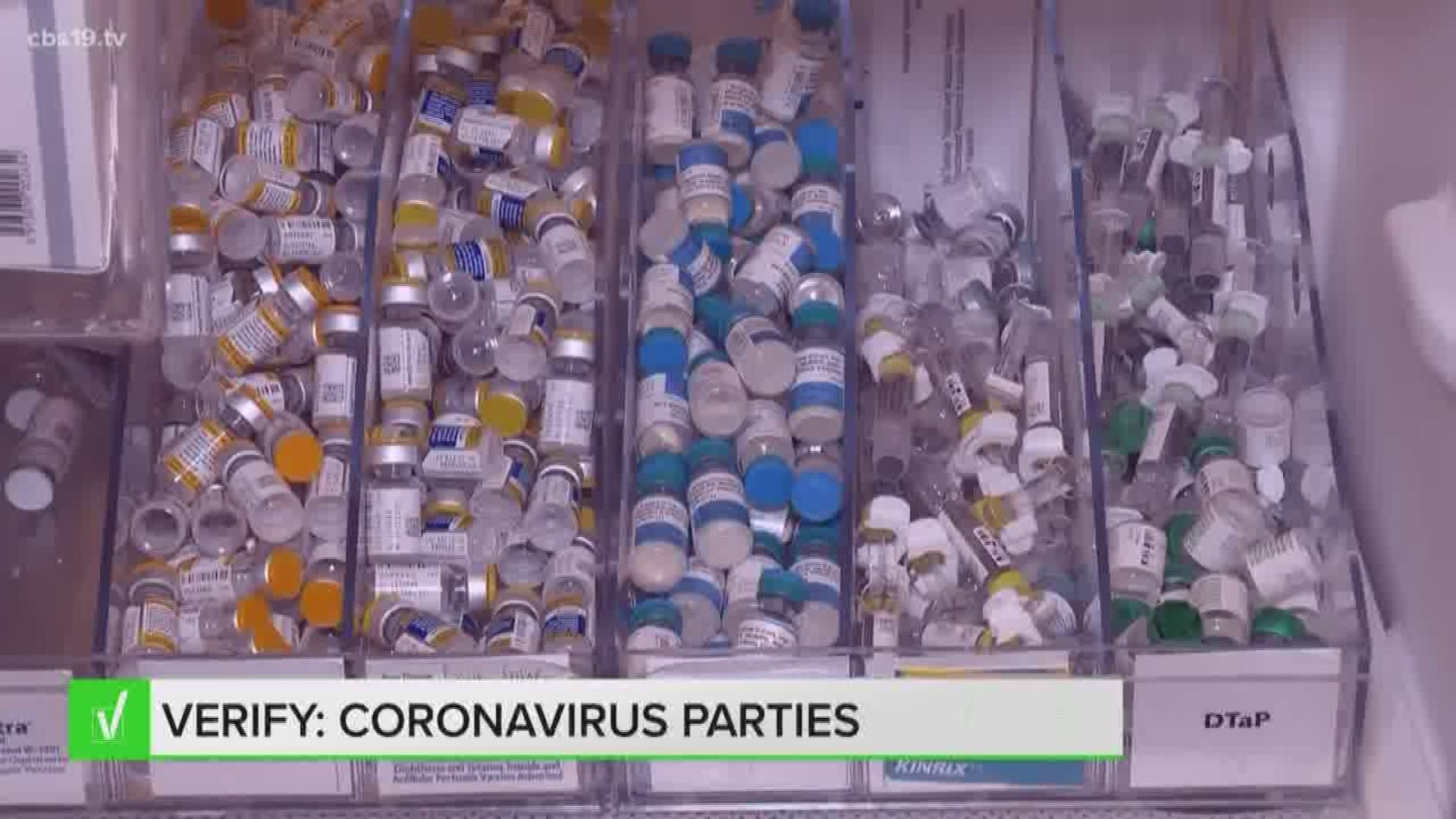TYLER, Texas — As people search for ways to stay healthy, a new approach became a topic of conversation this week: infecting yourself on purpose.
It was a popular option to cope with chickenpox, so could it help with coronavirus?
When Kentucky Governor Andy Beshear said Tuesday that a young person tested positive after attending a “coronavirus party,” a lot of people online started speculating that s/he was trying to get infected, and that the event might have been like the "chickenpox parties" parents used to throw for their children.
On Wednesday, the website The Federalist published an article in which the author pushes for people to hold such parties as a way to limit the virus’ impact.
To verify whether coronavirus parties have value, we will ask two questions:
- Can someone get COVID-19 more than once?
- Is there any value to getting the virus as early as possible?
In a Frequently Asked Questions section on its website, the Centers for Disease Control and Prevention writes, “the immune response to COVID-19 is not yet understood.”
Reports have mentioned that patients who were cleared have later tested positive again, but that could be due to a false positive test or a flare-up of the same infection. More time and research are necessary to determine whether a person can contract COVID-19 more than once.
The idea behind the “pox parties” of the past was that children tend to have less severe symptoms than adults who get chickenpox. Those parties largely ended in 1995 when a vaccine was discovered and produced, though some parents continue to infect their children rather than vaccinate them.
Prior to the vaccine, the CDC reports the mortality rate for chickenpox was 1 in 100,000 for kids 14 and under, 2.7 per 100,000 for patients aged 15-19, and 25.2 per 100,000 for adults between the ages of 30-49. According to CDC data as of March 25, the mortality rate in the U.S. for COVID-19 is 1,353 per 100,000 people..
“So, you have a one in 100 chance of not surviving that infection,” said Dr. Yvonne Maldonado, an infectious disease specialist at Stanford University. “Now, of course, that risk is higher if you are in a high-risk group, but do you really want to expose yourself to a 1% chance of dying from this virus?”
Someone infected with COVID-19 does not know to whom they might spread the virus. While experts believe it is most likely to be transmitted when the patient has the most noticeable symptoms, it is possible to spread the virus when asymptomatic. That is why George Roberts, CEO of NET Health, said Wednesday that staying away from any type of party of group setting is important.
"If you are sick right now, please, please, please stay at home,” Roberts urged. “Do not get out and potentially affect other, your other, other peers in the community."
If you have something you would like CBS19 to verify, send an email to CBS19's David Lippman at dlippman@cbs19.tv or send a message to his Facebook or Twitter accounts.
For more information on the coronavirus, text "FACTS" to (903) 600-2600.
RELATED: VERIFY: Even with low death rate, you should take necessary precautions to prevent COVID-19 spread

